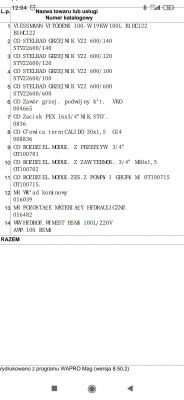The failure rate of boilers largely depends on the working environment and the operation of the "pest".
If your water is hard and you don't install a water softening / treatment station, breakdowns will come earlier. E.g. stuck switching valve, pump failure, heat exchanger over time. If you do not install good magnetic separators on the return from the central heating installation - there will also be breakdowns. Most often, pumps.
There is - rather - no such thing that a given company's boilers are more or less emergency.
On the other hand, some parts - subject to wear - such as seals, electrodes - may be more expensive or cheaper.
The first thing - the proximity of the site.
Second thing - minimum power
Third thing - price - BUT
fourth thing - what do you get for the price - and that's BUT it's all about.
fifth point - the price of spare parts subject to wear. For example, a gasket under the burner. Junkers for the WB6 exchanger costs about PLN 55 and you will replace it every 2-3 inspections. For DeDietrich, for example Lumea MPX - it costs 20 PLN - the frequency of replacement - similar.
Set of electrodes - for Junkers with WB6 - about 160 PLN, for DeDietrich - probably about 90-100, because you do not have to replace the set, but the ionization itself.
BUT
There may be a cheaper boiler with similar technical parameters (maximum and minimum power) but with a "poorer" motherboard - and you have to buy some control devices and the cheaper one will turn out to be more expensive.
e.g. You have a boiler, e.g. a clutch and you want to give a second pump after the clutch, which is to switch on with the pump in the boiler when heating the central heating. In Junkers, for example Cerapur SMART - you have such a socket on the disc, and in some Dietrichs you don't. In the cheapest Vaillant EcoTec Pure - also probably not. So you have to buy an additional device, and this is a cost.
Or a circulation pump. You connect to Junkers and select a circulation pump and the boiler will turn it on itself. A small thing, but in terms of "cheap / expensive" it can make a difference.
I have given the above as an example. My point was that you should plan wisely what this boiler is to do and how many heating circuits are to be, as well as triggered ones, etc. Later, look - which of the boilers that meet your criteria with parameters already has built-in control options.
You have a difficult choice ahead of you. Good luck
Well, unless you want to recommend a specific device - then create a poll and we will vote, and you choose the number of votes





